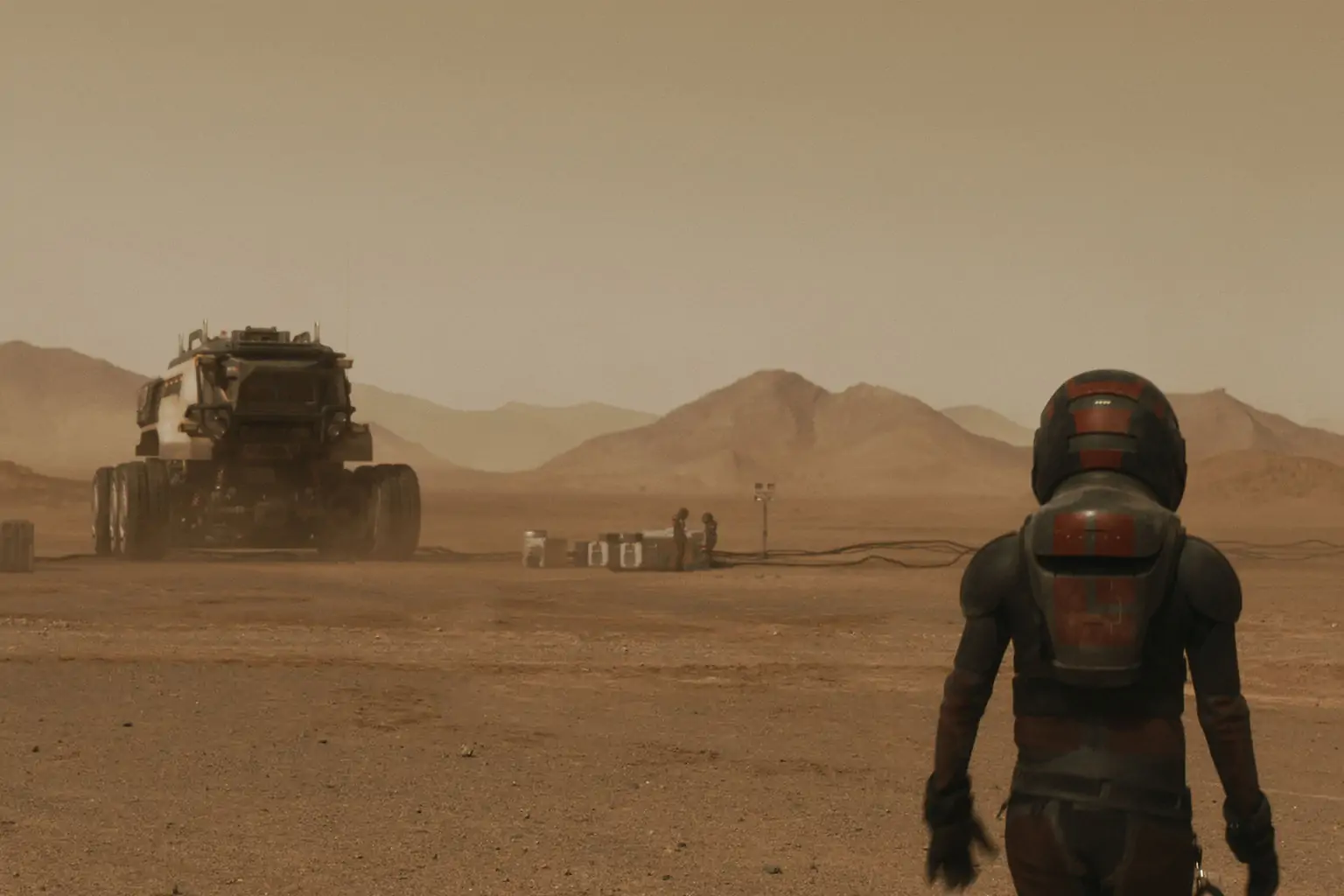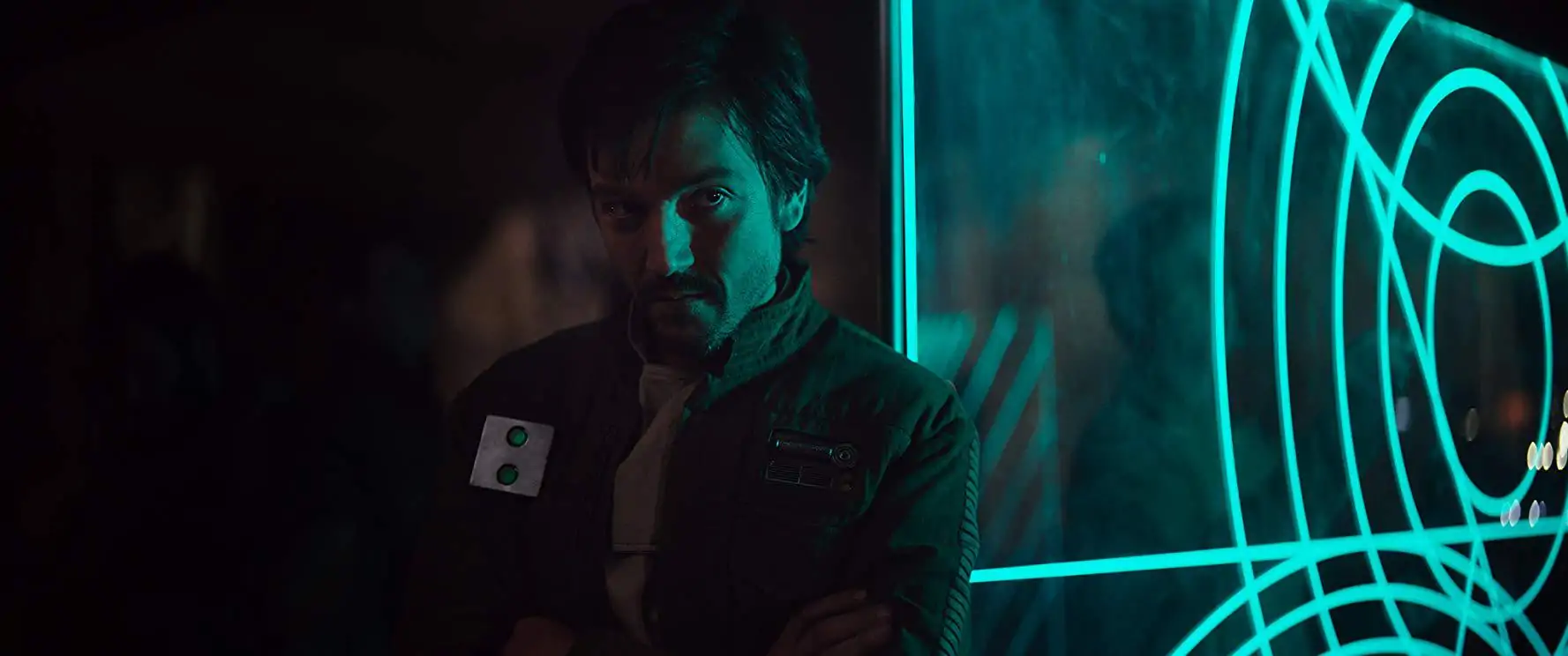
If you watched season one of Nat Geo’s series Mars, than you already know that this isn’t the typical primetime offering. Yes, it has the high production values and carefully scripted drama you’ve come to expect in the peak TV era, but it also offers viewers something fresh: Interviews with some of the world’s most important thinkers that accompanies the dramatized storyline.
The show tells the story of people’s quest to travel to and colonize the red planet, taking place in in the relatively near future. Inter-spliced throughout each episode are conversations with the likes of scientists and experts like Elon Musk and Neil deGrasse Tyson, who put the futuristic show into a tangible context while discussing the realities of modern space exploration. In other words, yes, it’s a cool show with plenty futuristic setpieces and dramatic storylines, but one that you actually feel smarter for watching.
In season two, which airs on Nov. 12, the show digs deeper. Yes, it is still interested in the science involved in humanity’s attempt to reach and colonize Mars, but now, it turns its focus to some of the ethical issues as well.
As this season’s showrunner Dee Johnson explained, “The biggest sort of theme for the season was sort of looking at human nature—whether or not we’re doomed to make the same mistakes in a new world. That was sort of an over-riding question that we were tackling over the course of the season.”
Whereas season one mainly focused on humanity’s collective effort to actually reach Mars (a feat that could happen in the not-too-distant-future, according to experts we spoke with), this season turns the clock forward several years, as Mars’ first space colony grows and faces the challenges of establishing community on a distant planet.
Like season one, there’s plenty of cool science and stirring visuals, but now, there are big questions to be asked. What happens when commercial interest get involved? What is preventing humans from destroying much of Mars, like they have done with Earth? Where is the line between exploration and exploitation?
Jeff Hephner, who plays a leader of a mining company with interest in Mars’ untapped resources, says humanity has demonstrated the same pattern repeatedly throughout our existence on earth.
“We are who we are,” Hephner said in a recent interview.
To him, this season is a sort of cautionary tale about the need to hold leaders accountable, and ensure that we have the right voices setting the course.
Reflecting on his character and some of the lessons of this season, Hephner said, “If we don’t have the right people in the right place at the right time, things go the other way,” he said. “And I think that we’ll be rolling that same set of dice up there, and ultimately, we will, overtime, have done the same up there as we’ve done down here.”
However, Clementine Poidatz, who plays Dr. Amélie Durand on the show says that along with the lessons to be learned about greed and environmental exploitation, the show also offers viewers something else really important: The potential for a future that is actually better than the present.
Just like the moon-landing did a generation ago, future exploration of Mars has the potential to unite humanity in hope and a common cause, and provides a stirring example of how—in the backdrop of an alien world—our differences are much less noticeable than the things that we all share.
“It’s going to be a huge challenge to overcome,” Poidatz said. The show, which was informed by actual scientists, engineers and space experts is clear that “we’re going to need all of the countries to work hand-in-hand to make it happen,” she explained.
Yes, people are people. We have a tendency toward greed, and thinking about the possibilities of colonizing Mars gives us an opportunity to reflect on that. But, going to a new planet also offers us a fresh start. It has the potential for us to prove to each other that we can overcome some of our worst impulses in favor of some of our best.
It will be extremely hard to get to Mars. And, even once we are there, the challenges with our own human nature may be as great as the challenges the alien terrain creates for living there. But, the one lesson that space exploration has ultimately taught us is that there is no challenge that people can’t overcome if they work together.
And that may be worth all of the risk.
“We need dreams right now,” Poidatz said. “We need the young generation to dream.”
And if Mars season 2 gives us anything, it’s the ability to dream about what our future might hold—for better or for worse. That part, is going to be up to us.






















